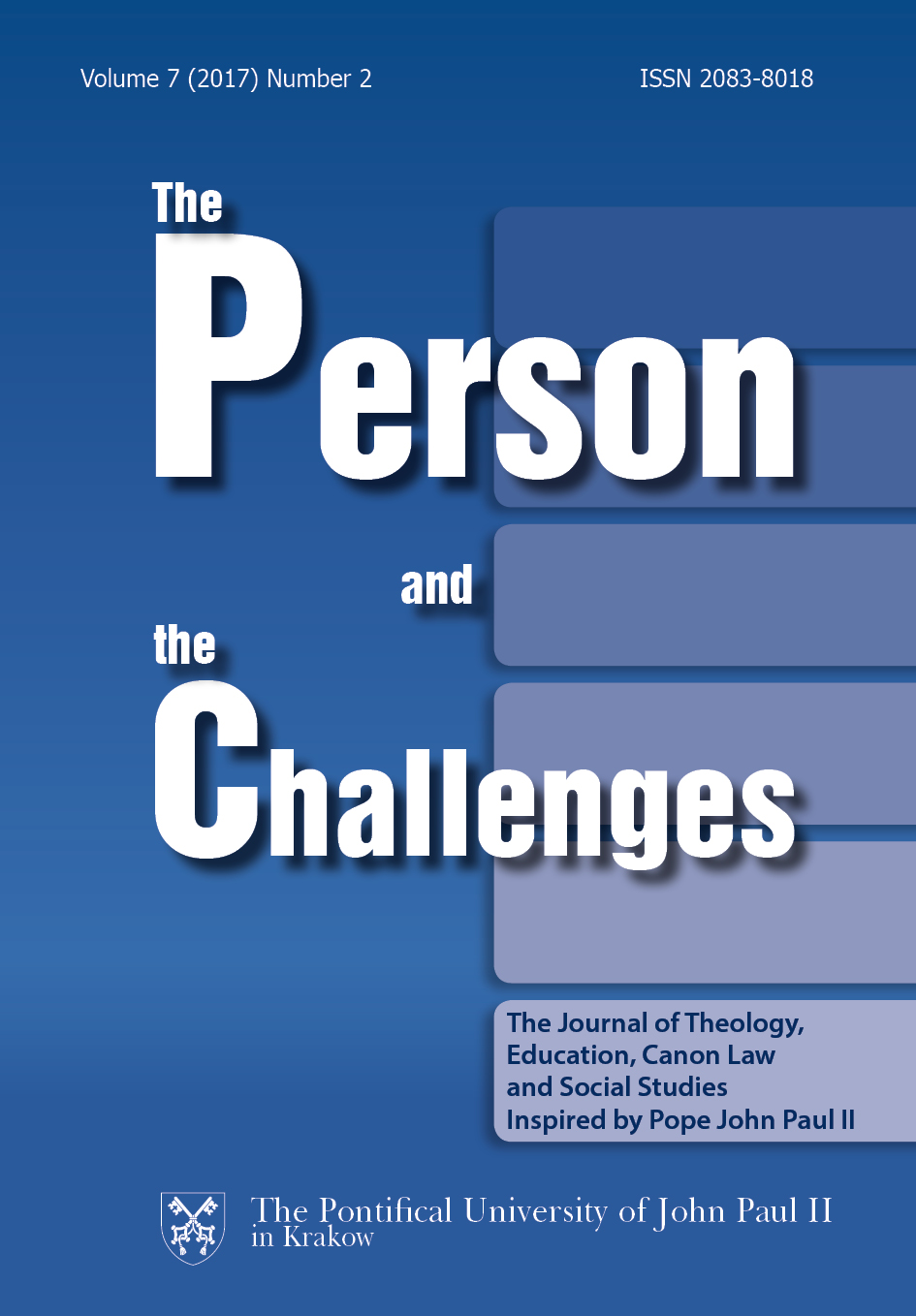Die Freizeittheologie mit besonderer Berücksichtigung der Ruhetheologie
DOI:
https://doi.org/10.15633/pch.2189Słowa kluczowe:
Theology, leisure, restAbstrakt
The author performs an analysis of „theological places” („loci theologici”), as the basis on which leisure theology can be developed. These are: time theology (a linear concept of time, which means that time is a gift to man, if properly used), freedom theology (freedom not as a discharge from obligations but as the possibility to do good), new creation theology (renewal made by the redemptive work of Christ), joy theology (joy of gifts of nature, community with other person, being granted God’s grace), feast theology (time given to a man in order that he could turn to supernatural matters). The author develops ‘rest theology’ extensively as one of the fundamental forms of spending free time. He searches for sources in numerous biblical texts, where this term has been used. Furthermore, he interprets, among others, how to understand God’s rest after he created the world, and how his repose becomes an example to follow for a human being. Moreover, the author explains what the final repose is to be for a person, and how man, living on earth, anticipates an eschatological rest.Bibliografia
Bleistein R., Freizeit in ihrem theologischen und politischen Stellenwert, in: P. Guntermann, Pust H. G., Freizeit‑Arbeit. Gesellschaflische Bedingungen und theologische Aspekte, Würzburg 1980, S. 81–96.
Dufour X. L., Odpoczynek, in: Słownik teologii biblijnej, Poznań 1990, S. 604–607.
Ebach J., Zum Thema: Arbeit und Ruhe in Alten Testament, „Zeitschrift für Evangelische Ethik” 24(1980), S. 7–21.
http://www.opoka.org.pl/biblioteka/W/WP/pawel_vi/adhortacje/gaudete_in_domino_09051975.html (29.02.2016).
https://w2.vatican.va/content/john‑paul‑ii/de/apost_letters/1985/documents/hf_jp‑ii_apl_31031985_dilecti‑amici.html (29.02.2016).
Jan Paweł II, Przemówienie podczas spotkania z robotnikami w Porto, 15 maja 1982, in: Dokumenty Nauki Społecznej Kościoła, Rzym‑Lublin 1987, B. 2, S. 276.
Jan Paweł II, Turystyka w służbie pokoju i dialogu między cywilizacjami, Orędzie na XXII Światowy Dzień Turystyki 2001 „L’Osservatore Romano” (polnische Ausgabe) 22 (2001) 9, 4.
Johannes Paul II., Apostolisches Schreiben über die Heiligung des Sonntags „Dies Domini”, vom 31. Mai 1998.
Johannes Paul II., Das Apostolische Schreiben an die Jugend der ganzen Welt anlässlich des Internationalen Jahres der Jugend „Dilecti amici“, vom 31. März 1985.
Johannes Paul II., Enzyklika „Laborem exercens“ vom 15. Mai 1981.
Lohfink R., Die Sabbatruhe und die Freizeit, „Stimmen der Zeit” 107(1976)6, S. 402.
Lohfink R., Unsere Großen Wörter. Das Alte Testament zu Themen dieser Jahre, Freiburg 1977.
Martin G., Fest und Alltag. Bausteine zu einer Theorie des Festes, Stuttgart 1973.
Paweł VI, Adhortacja apostolska o radości chrześcijańskiej „Gaudete in Domino”, 9 maja 1975.
Rahner H., Der Spielende Mensch, Einsiedeln 1990.
Romaniuk K., Biblijna teologia odpoczynku, Warszawa 1992.
Rordorf W., Der Sonntag. Geschichte des Ruhe- und Gottestienstages im ältesten Christentum, Zürich 1962.
Pobrania
Opublikowane
Numer
Dział
Licencja
Prawa autorskie (c) 2017 Maciej Ostrowski

Utwór dostępny jest na licencji Creative Commons Uznanie autorstwa 4.0 Międzynarodowe.
Autorzy publikujący w czasopiśmie udzielają jego wydawcy zgody o następującej treści:
- Autor zachowuje autorskie prawa majątkowe do utworu, a jednocześnie udziela wydawcy czasopisma zgody na jego pierwszą publikację w wersji drukowanej i wersji online na licencji Creative Commons Uznanie autorstwa 4.0 Międzynarodowe oraz zgody na wykonywanie opracowań, w tym przekładów.
- Autor ma możliwość udzielania zgody niewyłącznej na opublikowanie utworu w wersji, która ukazała się w czasopiśmie (np. zamieszczenia go w repozytorium instytucjonalnym lub opublikowania w książce), wraz z informacją o jego pierwszej publikacji w czasopiśmie.
- Autor może umieścić swój utwór online (np. w repozytorium instytucjonalnym lub na swojej stronie internetowej) jeszcze przed zgłoszeniem utworu do czasopisma.

